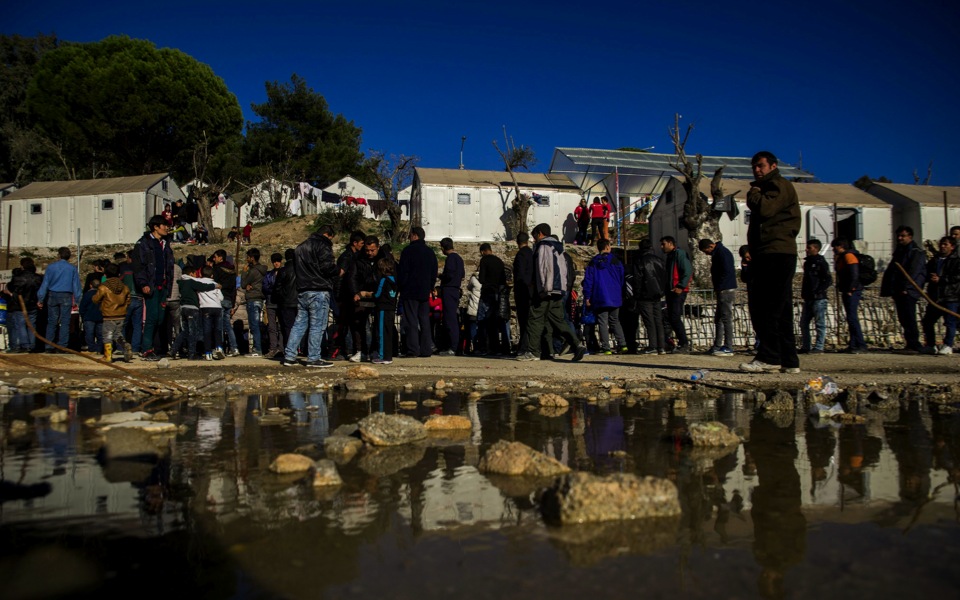EU welcomes Greek request for border aid

The European Commission on Friday welcomed a decision by the Greek government to request help from European Union-flagged patrols and emergency workers in monitoring its borders and screening asylum seekers fleeing conflict in the Middle East, amid reports that Brussels is mulling the formation of a special force to beef up the Schengen Area.
Speaking in Brussels on Friday, Commission spokesman Margaritis Schinas said that Greece’s decisions to activate the bloc’s Civil Protection Mechanism, to allow EU agency Frontex to help with the registration of migrants on the border with the Former Yugoslav Republic of Macedonia (FYROM), and to trigger the Rapid Border Intervention Teams mechanism (RABIT) for extra patrols in the Aegean were “in the right direction.”
Schinas said that Greece, which is in the front line of Europe’s migration and refugee crisis, has pledged to set up another four so-called hot spots on an equal number of Aegean islands. A first hot spot is already in operation on Lesvos.
“We hope to have concrete, tangible progress on the ground” before an EU summit on December 17 where migration will be on the agenda, he added.
Greece’s decision came amid reported threats from several EU governments that the country risked being kicked out of the Schengen zone of passport-free travel because of its leaky frontier.
The SYRIZA-led government on Friday sought to fend off criticism of foot-dragging, saying it was the EU that failed to meet repeated Greek calls for aid.
“Since May, Greece has persistently been asking for technical, technological and staffing help, and what it has received from Europe is far less than what was asked for,” Alternate Minister for European Affairs Nikos Xydakis told The Associated Press, adding that Greece needed 750 but initially received only 350 staff from Frontex. Xydakis said that about 100 more border guards had arrived in recent days.
In comments Friday, European Migration and Home Affairs Commissioner Dimitris Avramopoulos sought to take some of the pressure off Athens, saying that Schengen should be made “part of the solution.”
“It is precisely by applying the rules, by using the system, that we ensure the safety of our citizens. We should focus on strengthening and improving Schengen, not breaking it down.”
Meanwhile, reports on Friday said the EU is mulling a measure that would grant a special EU border force powers to step in and guard a member-state’s external frontier to protect Schengen. The EU’s executive is expected to propose the establishment of the unit on December 15. It is unclear if operations would require prior invitation from the member-state in question.
“One option could be not to seek the member-state’s approval for deploying Frontex but activating it by a majority vote among all 28 members,” an unidentified EU official told Reuters. But such a move is not expected to sit well among member-states wary of potential sovereignty loss.
Easing some of the strain faced by Greece, authorities said Friday that more than 2,000 refugees from Syria, Afghanistan and Iraq had crossed the border into FYROM one day after the border closed because of clashes between migrants. However, more than 3,000 people are stranded south of the dividing line.
In a related development, authorities said Friday that 24 refugees (16 Syrians and eight Iraqis) in Greece will travel to Finland on Thursday as part of the EU’s relocation program. Another 22 are expected to relocate to Germany, Lithuania and Portugal in the coming weeks.
The Greek Police repatriated 1,604 migrants in November. The majority of them were deported to Albania (1,352), Pakistan (80) and Turkey (25).





